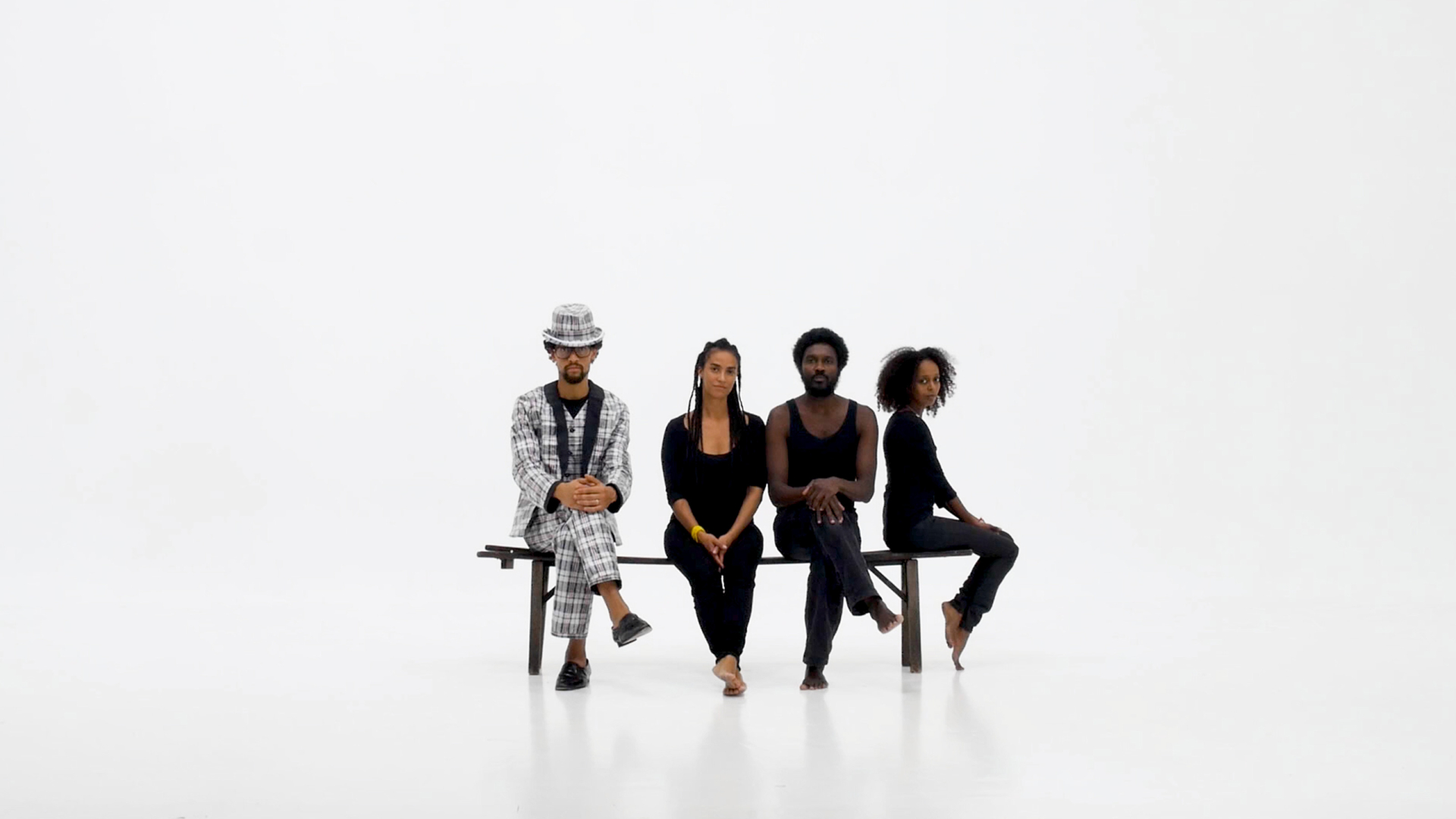Taking another look at Africa
There is still, of the African continent, a romanticised perception associated with exoticism, a vision perpetuated by colonial memory, which demonstrates the maintenance of a stereotyped discourse. The persistence of these kinds of narratives reveals the continuity of discourses based on a view centred on realities experienced in Europe or North America and the conservation of colonial structures, confirming the need for a process of decolonisation of thought.
This process involves deconstructing the assumption that the modern West is the central root of African consciousness and cultural heritage. Africa is not an extension of the West.[1] It means looking at that which, from the past, continues to affect the present – the repressed histories and memories of colonialism – and including it in public debate. In the field of art we have seen, at the level of artistic production and also the programming of cultural institutions and research platforms, a search for critical reflections about colonial heritage and its legacy in the present, in order to promote a more inclusive artistic practice.
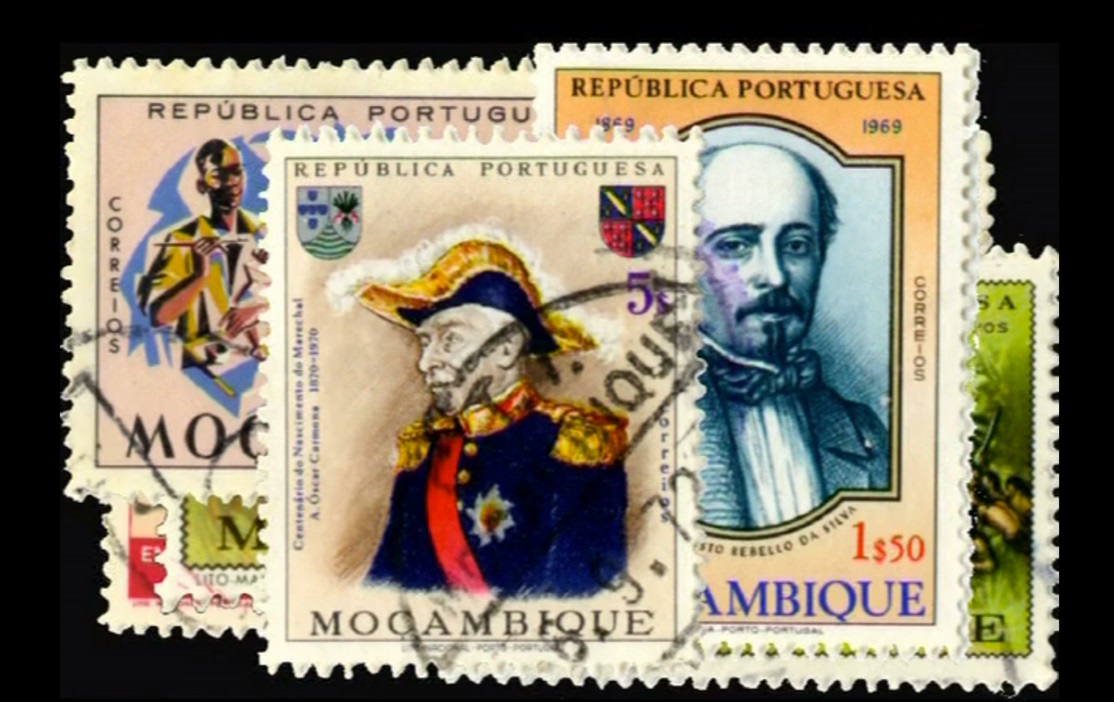
In contemporary production, artists such as Maria Lusitano have sought to think about colonial memory, like in the work Nostalgia, a ‘selective audiovisual history’ that combines various media (Super 8 films, photographs, postcards, telegrams, pop songs and subtitles), narrated by an adolescent who joins his family in Lourenço Marques (present-day Maputo). He describes his fascination with a colourful and ‘paradisiacal’ metropolis,[2] which contrasts with the harshness of the war in rural areas, as if it were a distant reality.
In Nostalgia, the Portuguese artist seeks to rethink the excess of memory, as the work’s title indicates, simultaneously revealing a selective amnesia expressed through the silencing of histories and memories of the colonial past considered inconvenient, such as the violence of the war. By remembering the past, Maria Lusitano allows us to revisit repressed memories, confronting and threatening hegemonic narratives.
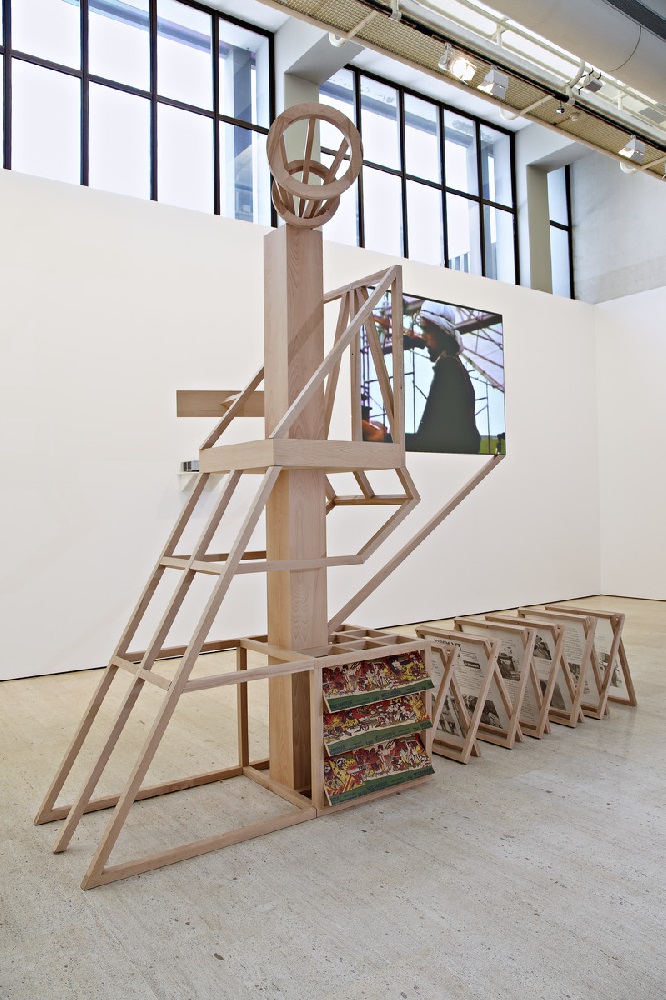
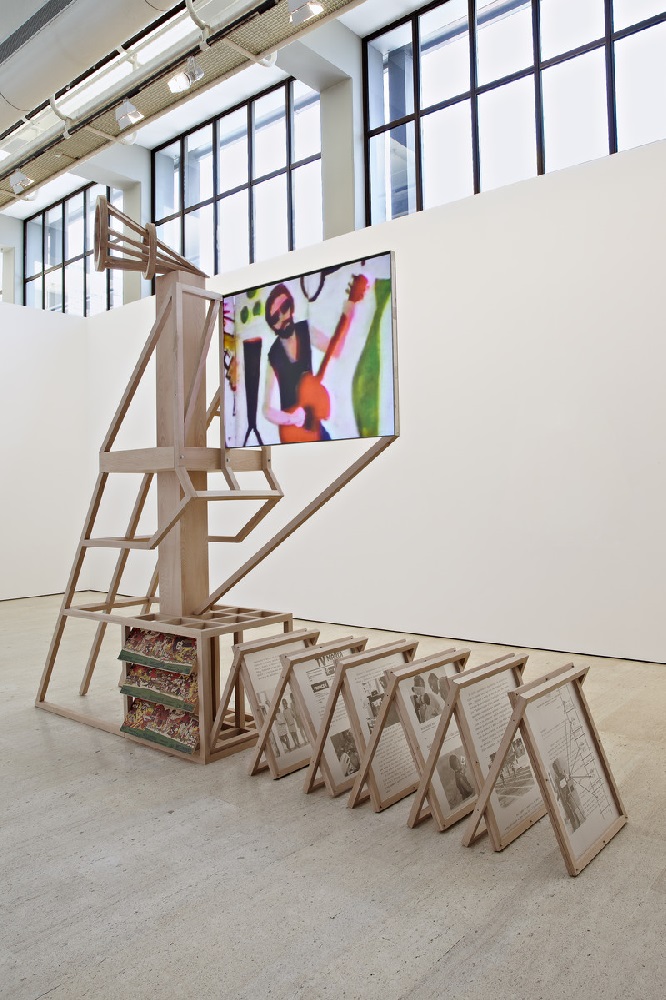
Somewhat similarly, in For Mozambique [model 3 for propaganda stand, screen and loudspeaker platform celebrating a post-independence Utopia], Portuguese artist Ângela Ferreira, by confronting what had been forgotten, seeks to recover and reframe cultural discourses of the past, directing them towards their reconstruction in the present. With a wooden structure, inspired by the old models of Soviet agitprop, Ângela Ferreira presents videos and documents relating to the early years of Mozambican independence,[3] constructing a space marked by the intersection of languages, styles and histories which evoke a connection between Western history of art and African political and social history. Thus, she creates spatial and temporal moments, combining the present with the recovery of creative and revolutionary images and processes of the past.
The idea of rethinking issues of the colonial past is also present in the installation Illusions Vol. I, Narcissus and Echo by Grada Kilomba. The artist retells the Greek myth of Narcissus and Echo, gradually deconstructing and transforming it into an analogy of a society that has not resolved its colonial past and is incapable of looking beyond its own reflection. By using video, performance, sound and narration, Grada Kilomba recovers West African oral tradition, fundamental to the preservation of knowledge for centuries, also exploring the power of cultural elements and traditions of the African diaspora (orality, musical and performative production).
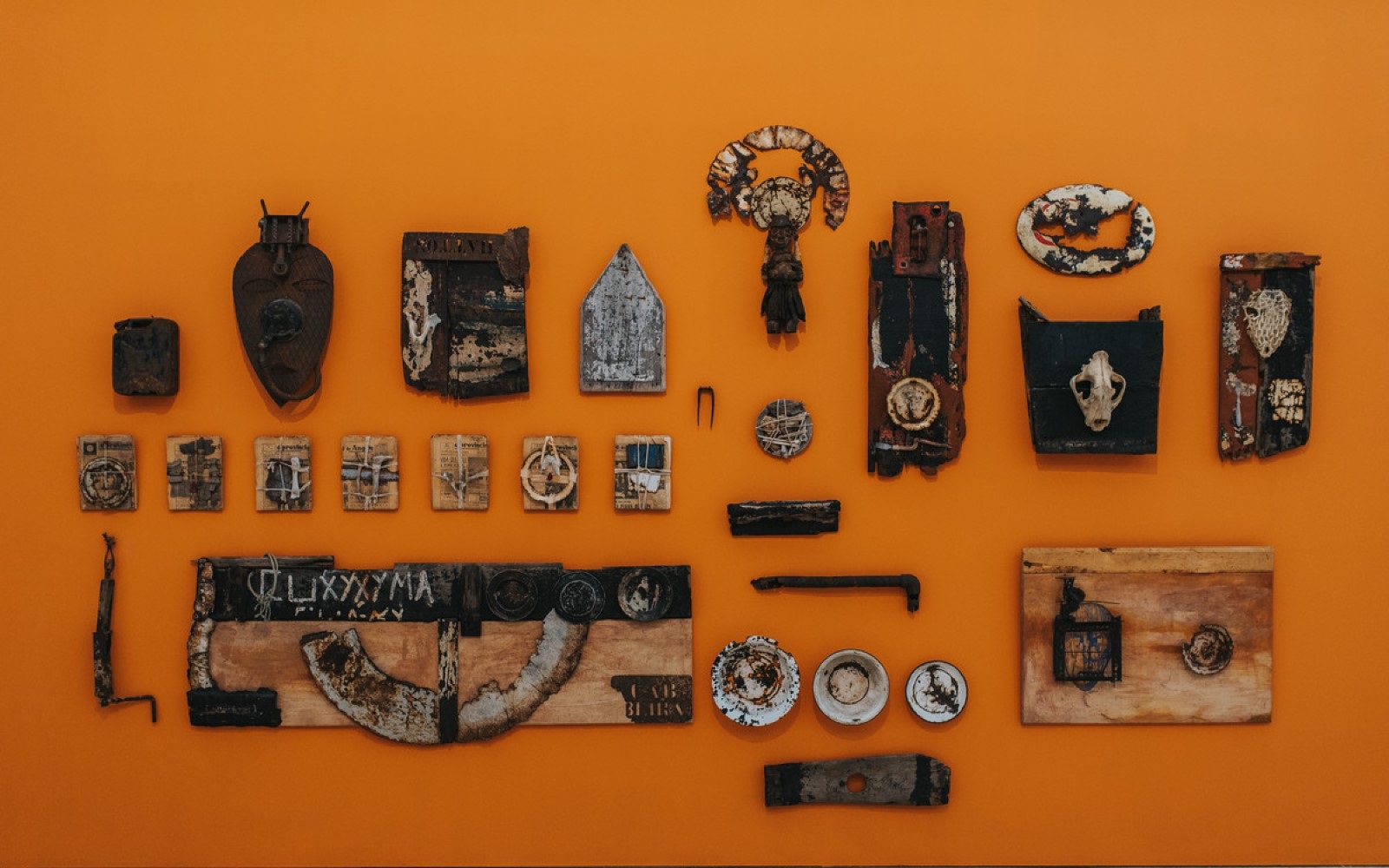
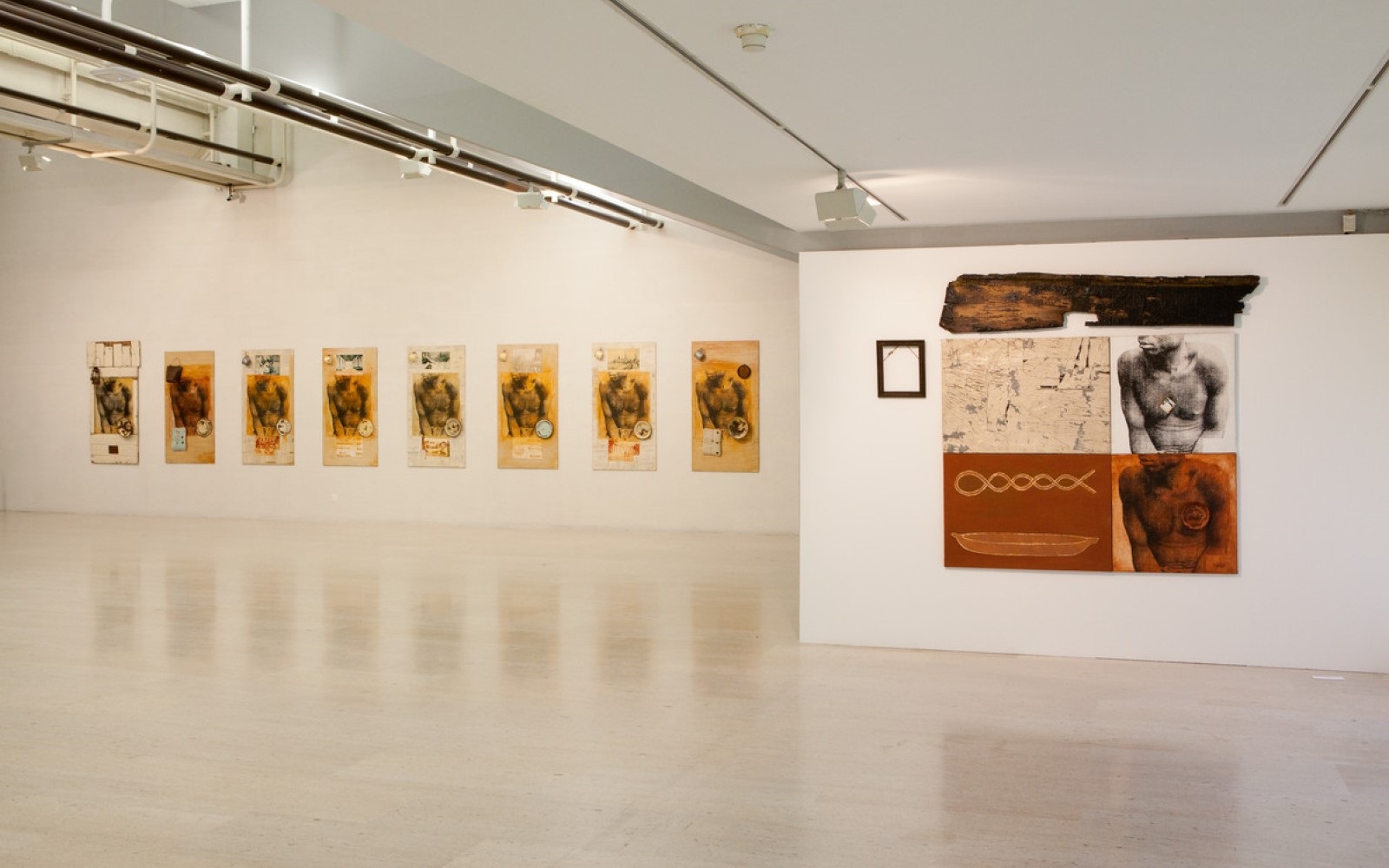
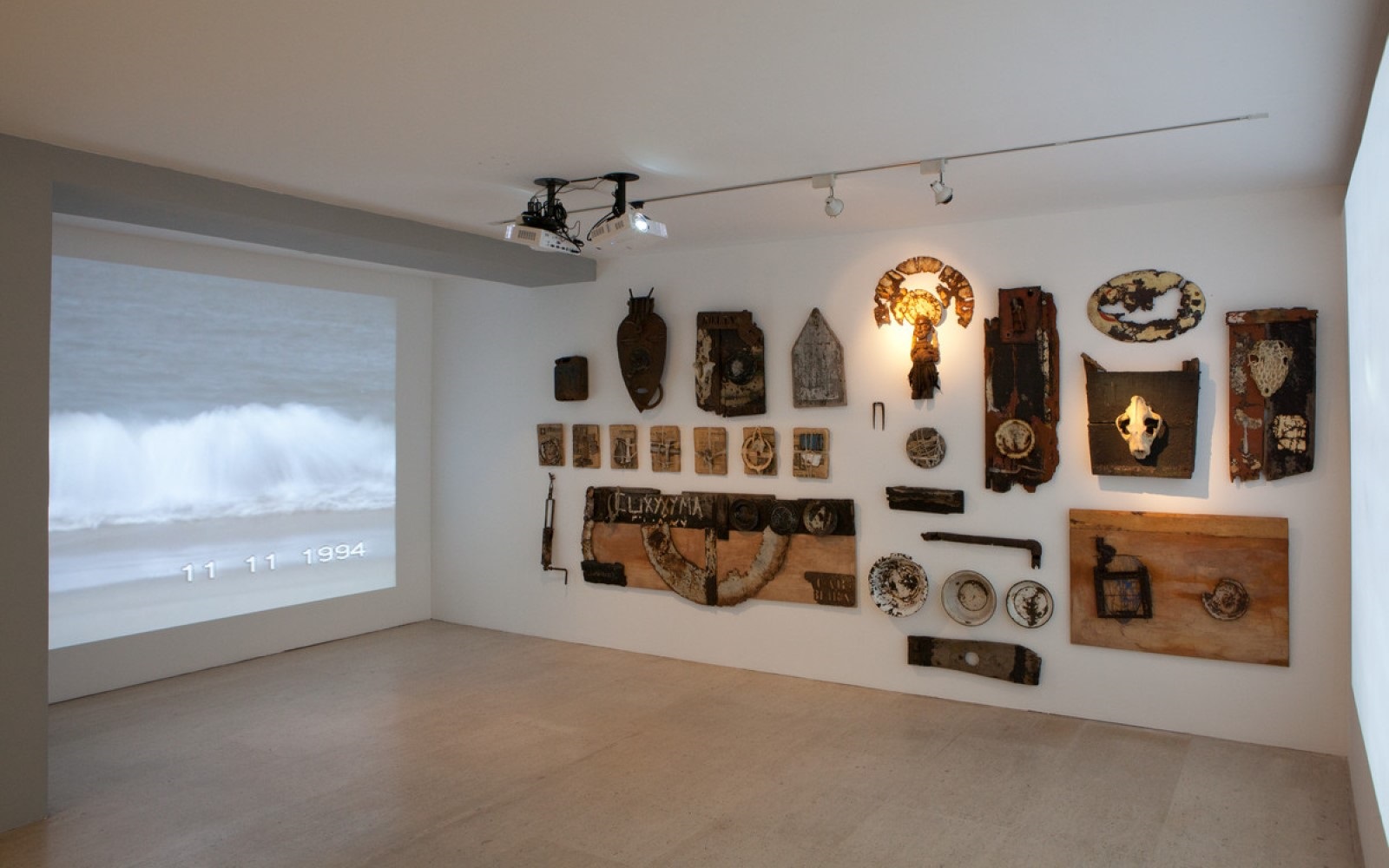
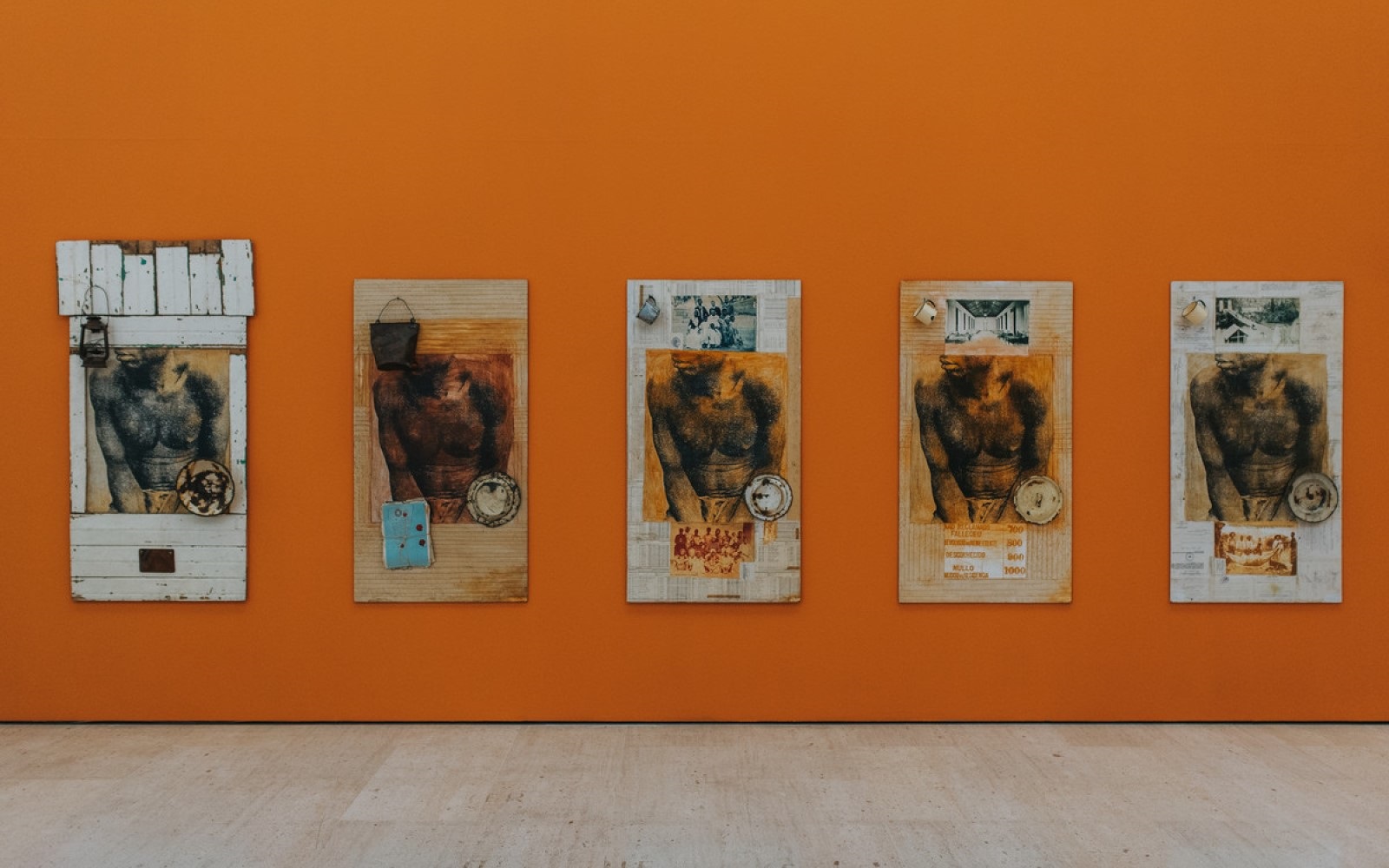
In the installation Hidden Pages, Stolen Bodies, by António Ole, the Angolan artist deals with a darker past, retelling the story of neglected lives, marked by forced labour under colonial rule at the end of the 20th century. The images and objects of this work are not associated with specific individuals: they are bodies without a face, without an identity, which, for António Ole, demonstrate society’s lack of memory about an unknown and anonymous past, but simultaneously seek to rewrite the unknown pages of Angolan history. This revisiting of the hidden pages of the colonial era’s cultural memory is motivated by the desire to draft new stories, as a way of rethinking the present and the future, attempting to take another look at contemporary African art and expressing realities and discourses often invisible or underrepresented in the international art scene.
The work of these artists focuses on the past, but it attempts to think about the present, looking to the future and demonstrating how art can be a mechanism to create new languages, tell new stories and subvert dominant narratives.
[1] Achille Mbembe, Decolonizing knowledge and the question of the archive, 2015.
[2] Ana Cristina Cachola, ‘Escrever imagens em nome da guerra em Nostalgia de Maria Lusitano: Quando a colónia mostra a metrópole’, Comunicação e Cultura, 2011, pp. 151-169.
[3] Márcia Oliveira, ‘Considerações sobre o arquivo em práticas artísticas pós-coloniais. Uma reflexão a partir da obra de Ângela Ferreira’, Revista Faces de Eva, FCSH-UNL, 2018, pp. 107-114.
